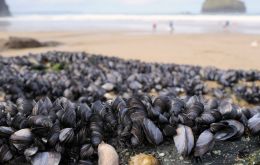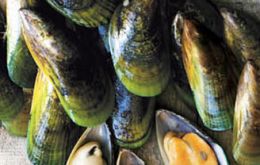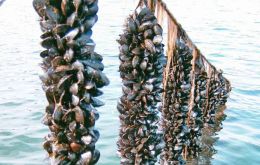MercoPress. South Atlantic News Agency
Tag: mussels
-
Tuesday, April 21st 2020 - 15:25 UTC
Mussels, an invasive species, have been found in South Shetland Islands Antarctic waters

Mussels are the first-ever invasive species to take up residence in Antarctica, as found by a new study published last month in Scientific Report. According to the study, scientists found a colony of mussels, most likely transported accidentally to the frozen continent from Patagonia via ship, some 75 miles north of the Antarctic Peninsula.
-
Thursday, February 20th 2020 - 09:00 UTC
New Zealand die-off: half a million mussels “cooked” in the wild in unusually balmy waters

Up to half a million mussels were effectively cooked in the wild in unusually balmy waters on the New Zealand coast in a massive “die-off” that marine experts have linked to climate change.
-
Sunday, October 19th 2014 - 07:59 UTC
Chile exports 154m dollars of mussels in eight months; Galicia still out of the market

In the first eight months of the year, Jan-August, Chile exported 52,077 tons of mussels (Mytilus chilensis), a rise of 1.8%, compared to the same period a year ago. However in dollars the result was 154.3 million dollars, up 5.9% compared to the 145.7 million dollars of the eight months of 2013, reports InfoTrade. Meanwhile northeast Spain mussel farms continue ravaged by the red toxin algae.
-
Wednesday, August 13th 2014 - 22:12 UTC
Galicia closes a third of mussel polygons because of resurgent bio-toxic red tide

The Xunta of Galicia in the northwest of Spain banned the extraction of mussels in 18 of the 55 floating nurseries of the autonomous region, that is to say, in 32% of the total capacity because of the presence of lipophilic biotoxin.
-
Wednesday, July 4th 2012 - 18:42 UTC
New UN food standards regulations extensive to milk, sea food, dried fruit and melons

The UN food standards body has agreed on new regulations, including the maximum level of melamine in liquid milk formula for babies, to protect the health of consumers across the world. Other measures adopted include new food safety standards on seafood, melons, dried figs and food labelling.
